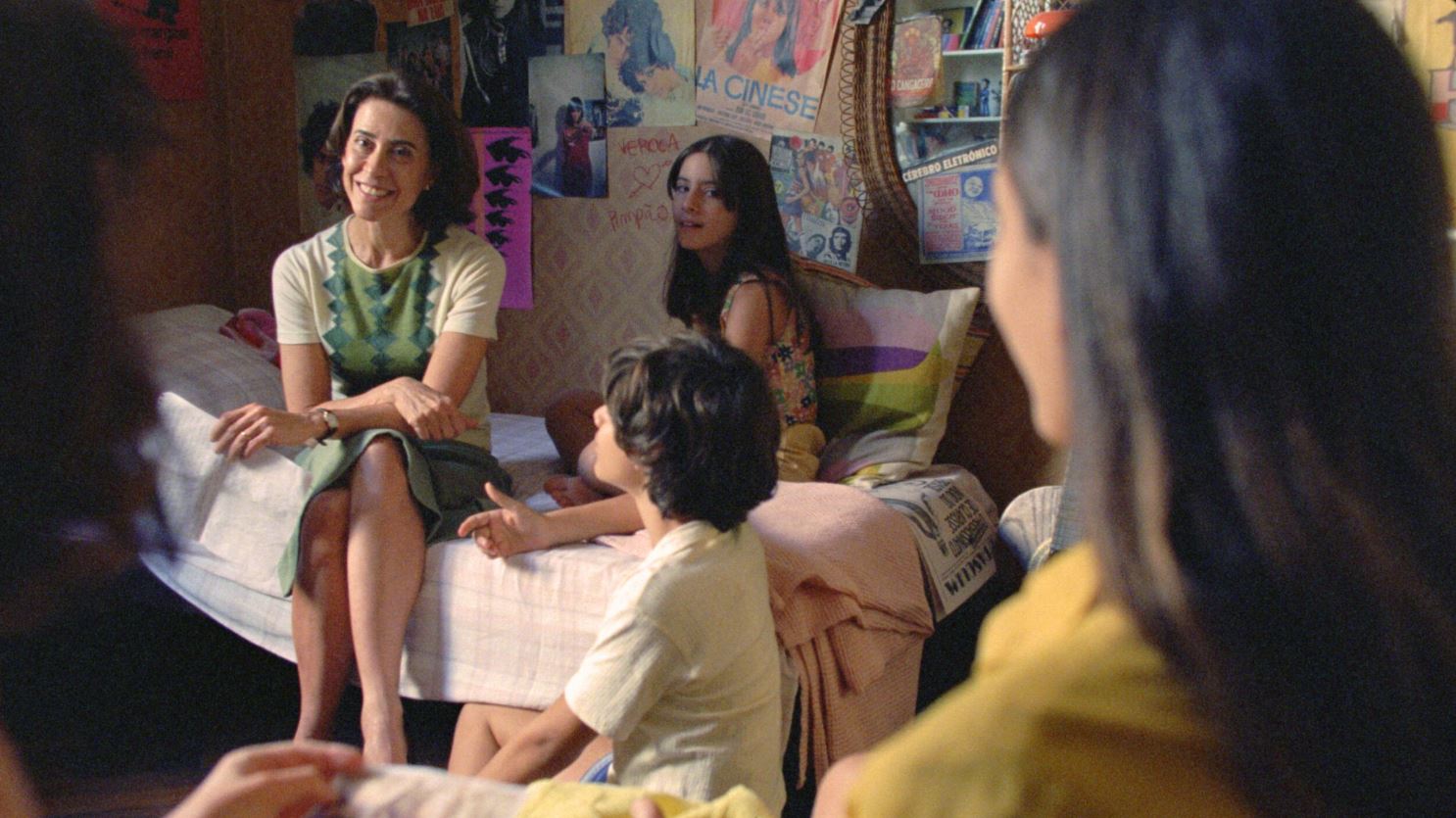I’m Still Here – Film Review
Reviewed by Damien Straker on the 13th of March 2025
Sony presents a film by Walter Salles
Screenplay by Murilo Hauser and Heitor Lorega nased on ‘I’m Still Here’ by Marcelo Rubens Paiva
Produced by Maria Carlota Bruno, Rodrigo Teixeira, and Martine de Clermont-Tonnerre
Starring Fernanda Torres, Selton Mello, Fernanda Montenegro, Valentina Herszage, Luiza Kosovski, and Pri Helena
Cinematography Adrian Teijido
Edited by Affonso Gonçalves
Music by Warren Ellis
Rating: M
Running Time: 137 minutes
Release Date: the 26th of February 2025
The Brazilian family drama I’m Still Here shows even the bleakest stories can be beautifully lined with optimism. The rather unique angle of finding solidarity and hope in the face of repression accounts for the film’s critical and populist resonance. It was awarded the Oscar for Best International Feature Film and was nominated for Best Picture too.
The realism of its family dynamics is arguably its strongest personal asset. The interactions between the actors never feel scripted. The chemistry between the actors in the first half is why as it continues the film becomes intensely moving. If the story were shortened and tightened in the middle portions, it would have soared higher. Nonetheless, it works because it depicts more than just the bleak outcomes of the violent political landscape.
The plot is based on the true story of family man Rubens Paiva’s kidnapping. Its 1970 and Brazil is under the thumb of a military dictatorship. Trucks full of soldiers pour through the streets. Our focus though lingers on an ordinary middle-class family. Rubens (Selton Mello) is a former congressman turned engineer. He and his wife, Eunice (Fernanda Torres, excellent), live happily with their children of different ages. The oldest girl, Vera (Valentina Herszage), is being encouraged to spend time in Britain. Her parents are concerned that with college looming she will become more interested in student politics. The family also welcomes a stray dog into their home, much to the chagrin of their housekeeper (Pri Helena).
Everyone is happy in their own way, but political tensions loom large. On the television there are news reports about foreign ambassadors being kidnapped and exchanged in prisoner swap deals. One night Vera and her friends are also stopped and frisked by the military. Rubens’ friends then urge him to leave Brazil and stay with them in London. His decision to remain in Brazil proves costly. He is abducted by soldiers and never seen again. Eunice and her younger daughter, Eliana (Luiza Kosovski), are also taken, interrogated, and soon released. The trauma presses Eunice to hold the family together herself. Since some of her children are too young to understand, she shields Rubens’ abduction from them. She also presses to have the family’s story told in the newspapers and expose the Brazilian military’s tyranny.
I’m Still Here’s first half is particularly impressive because of how it uses the family dynamics. Director Walter Salles, who filmed The Motorcycle Diaries (2004) and produced City of God (2002), smartly takes his time to show everyone living as an ordinary family. He films them playing soccer and volleyball on the beach. Salles’ camera bobs and weaves with the movement of the ball so the action feels grounded. The children are also filmed running through the house with the little dog and then later dancing in the living room to their records. Later, everyone goes out for ice-cream. Normally it is difficult showing ordinary people being happy on screen. However, the banal optimism is part of the story’s clever framing.
Seeing them extensively enjoying each other’s company and being a well-balanced family makes the tough abduction scenes more confronting. Having seen Rubens as a loving, funny father makes the sight of his capture scary and tense. The troubling scenes of Eunice and Eliana being hooded and abducted separately are also disturbing. It is amazing how violent psychological intimidation can be. It’s not about bloodshed but fear. The goons stay in the family’s house, share a meal, and play foosball. We don’t know how dangerous they are. In the barracks Eunice is told Rubens was a communist and they force her to identify his picture. The uncertainty hurts, especially when she hears people being tortured. Later, some other men sit in a car and watch Eunice’s house. They also allow something so cruel and unnecessary to happen that you wonder what kind of sick bastards these people are. Ultimately, Walter Salles adeptly challenges our emotions by showing the family dynamics first before deploying the most confronting elements.
I’m Still Here is acted with great conviction by both the children and adults. Fernanda Torres deserves the plaudits she has received for her understated, melancholic work. The scenes where Eunice is interrogated are a particularly strong showcase. One can see how visibly shaken and afraid she is in her eyes when she is questioned and left alone in a cell. She is also deliberate and crafty too. When she returns to the barracks she pleads with a guard and tells him she needs to give Rubens something for his diabetes. She reveals to someone she made it up to find him. There are also poignant moments with the children too. She asks Eliana if they did anything to her while she was captured, which has its own bleak implications.
Over the course of the film, we see Eunice take control of the family, whether it is pressing to find out if Rubens is still alive, turning the radio off to protect the children from the news, or selling her house to move to São Paulo. It’s a dominant display of ownership and solidarity. Eliana is also particularly impressive as Eliana and has some very emotional scenes that she handles well. Selton Mello’s performance as Rubens feels underrated. Its challenging playing a happy character at any time but early on he quickly makes him a likeable, loving father and husband without the film feeling too optimistic and sugary. Once again, it’s the actors that help sell the idea of family solidarity because of their believable, humane performances.
The film’s only shortcoming is it feels overlong at 137 minutes. It could have been told in just under two hours. There is a perfect moment where the story. Instead, it pushes forward into the future and mentions Eunice’s work as a human rights lawyer. The epilogue too is very emotional. It forgoes the grief and loss that a more conventional adult drama would show.
Instead, it exchanges bleakness for the family’s continued unification. No matter what setbacks faced their spirits will never be broken. They will always have the memories of the best times in their lives together. Along with the superb performances, this is why the film has affected audiences. The confronting scenes of psychological torture are countered with optimism and a strong parental figure who solidifies and protects the family unit.
Summary: I’m Still Here shows even the bleakest stories can be beautifully lined with optimism.









